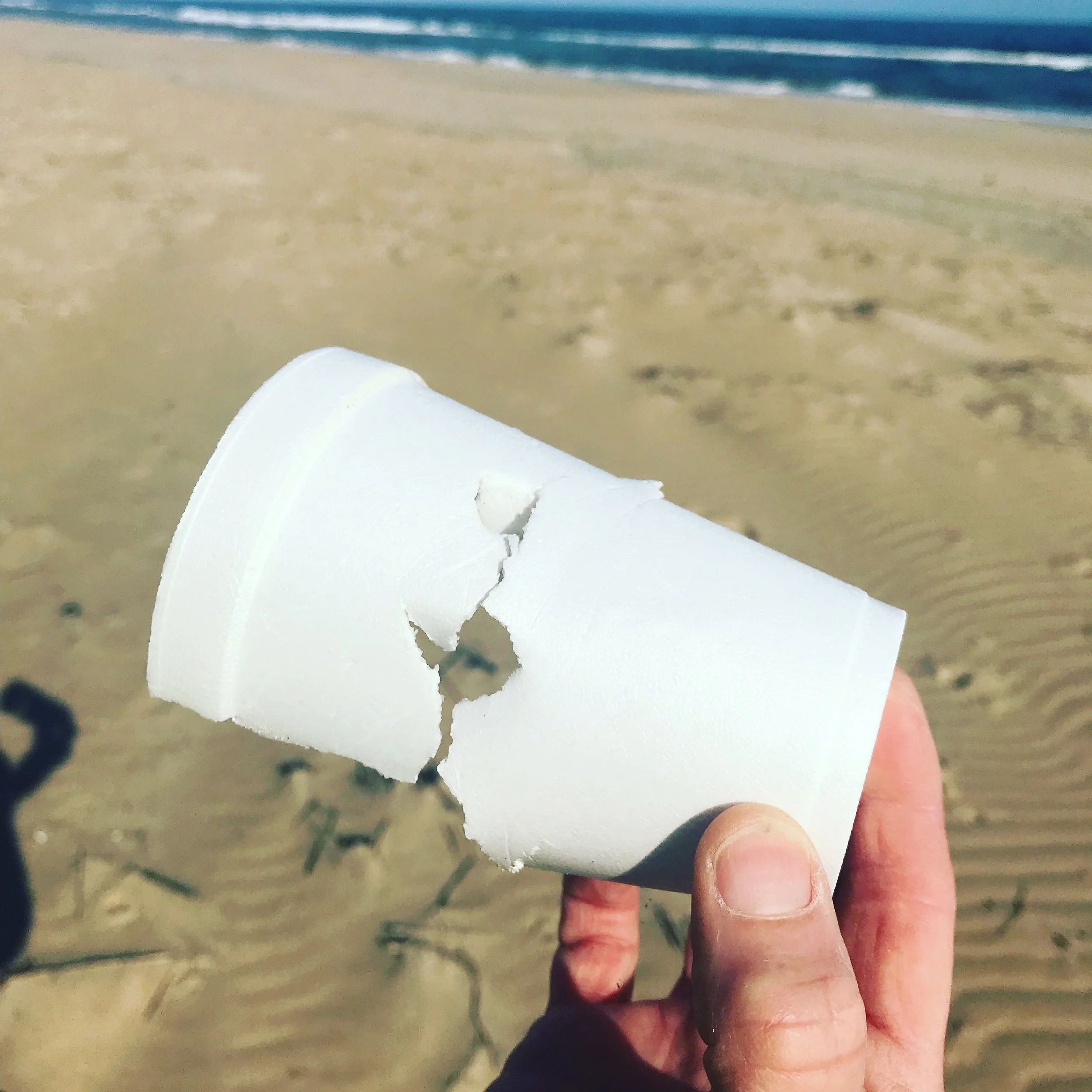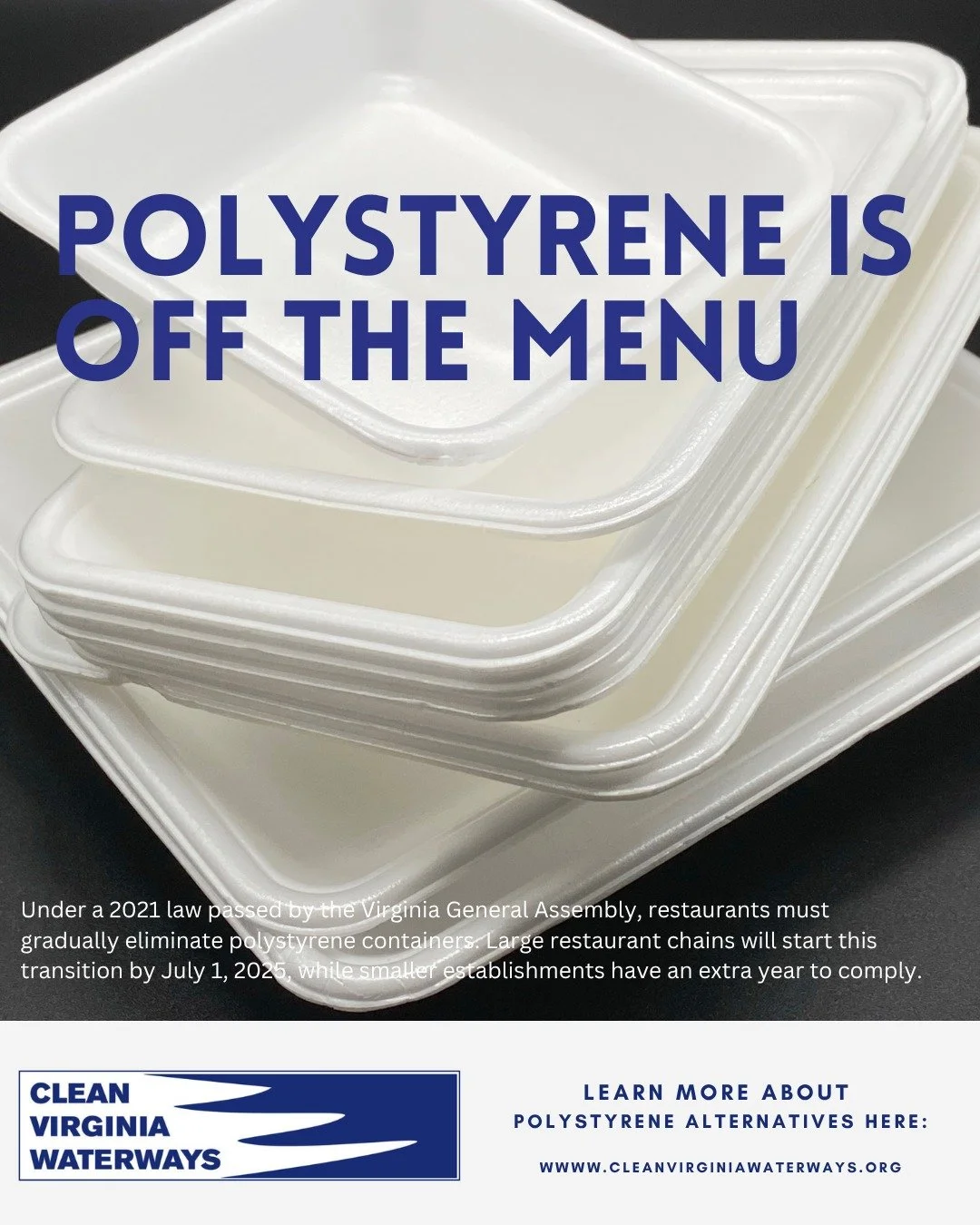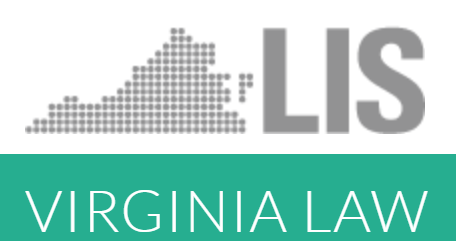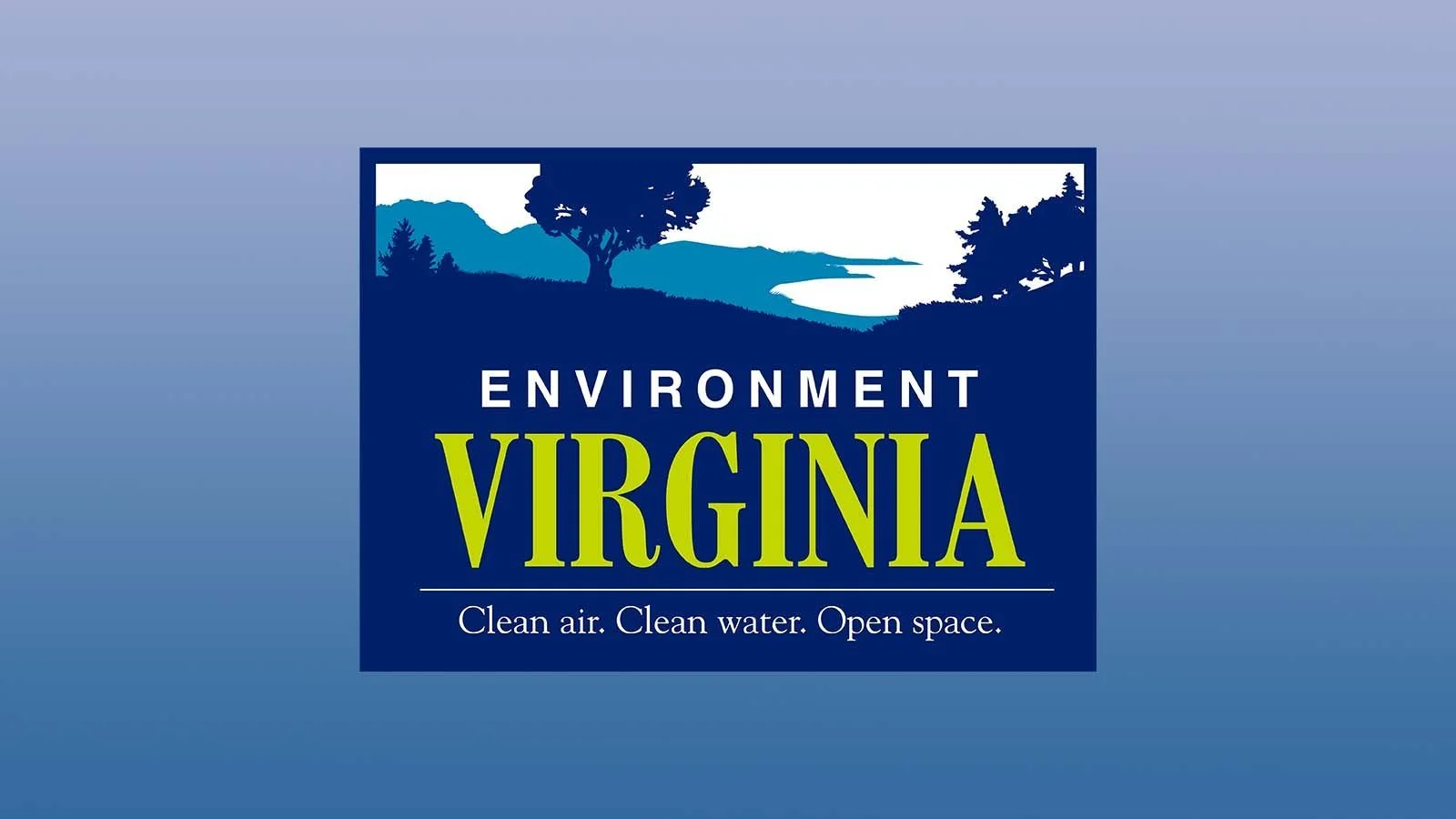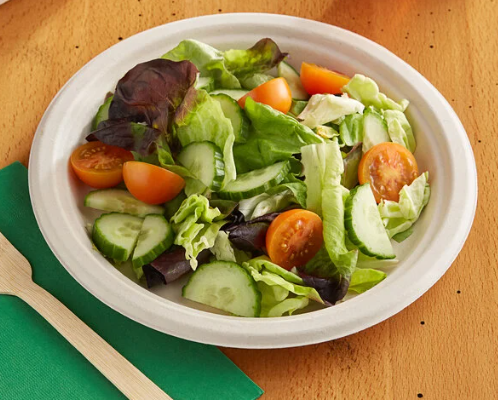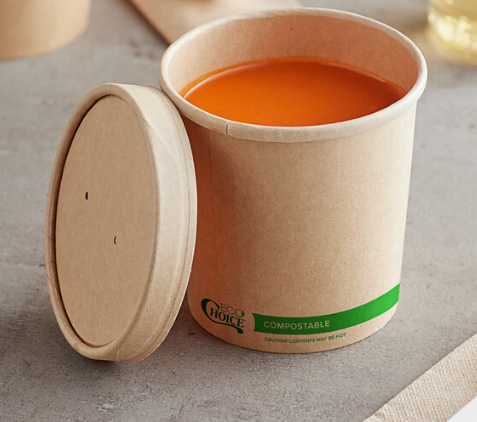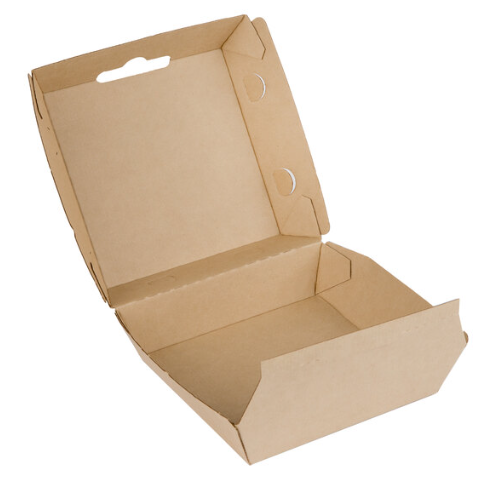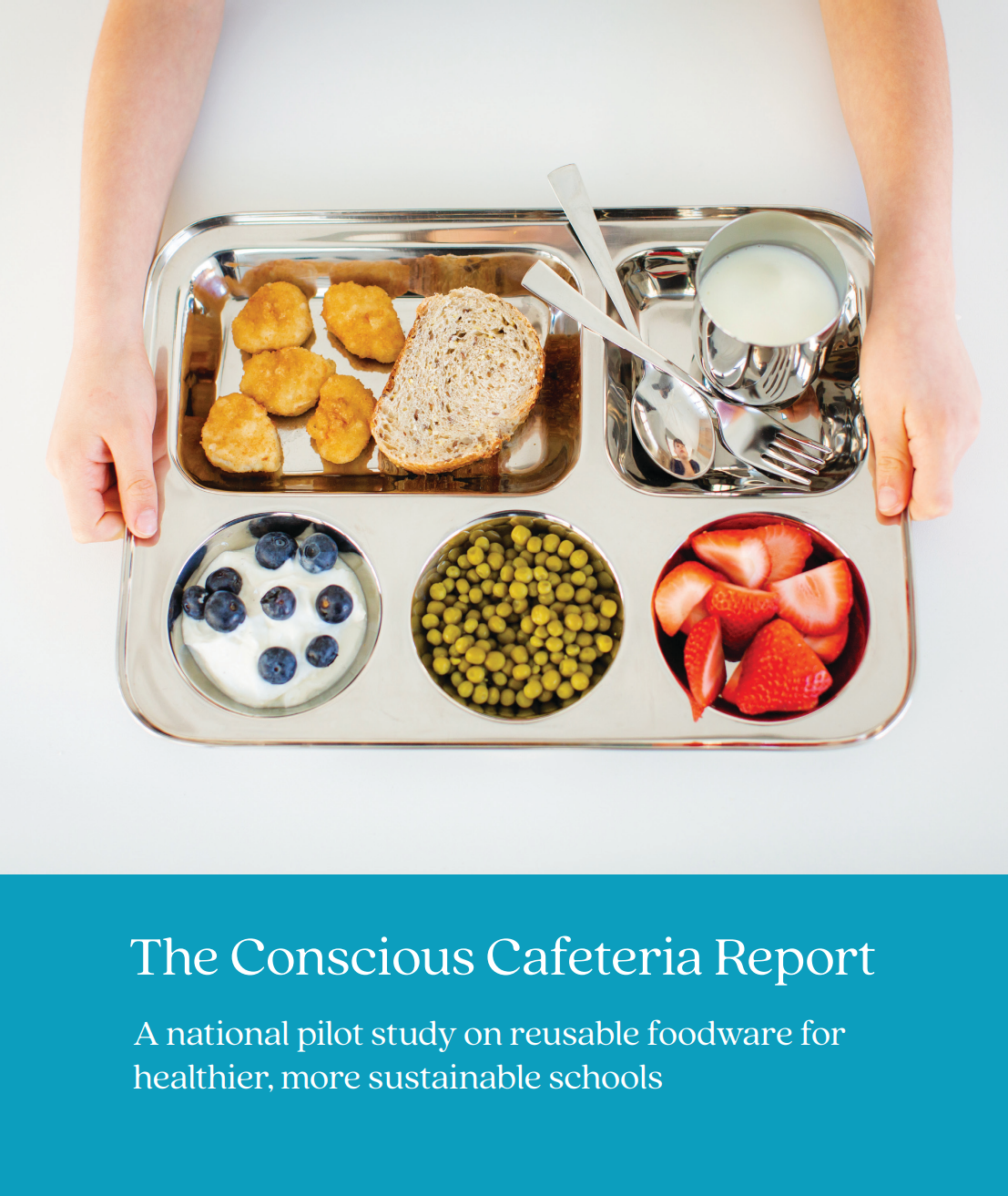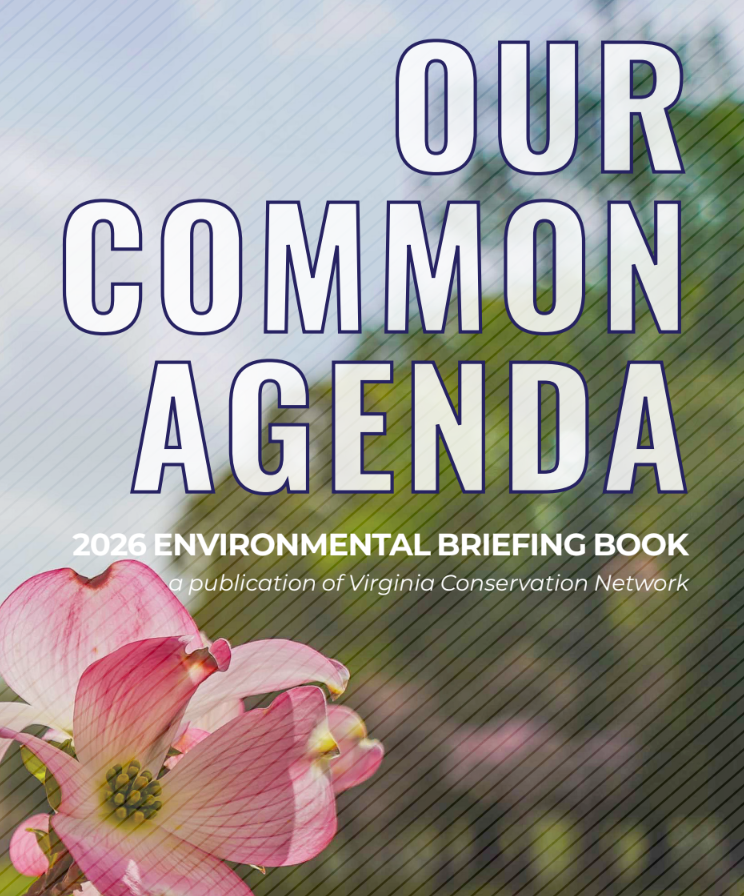Foam Phaseout Resources
Restaurants: find digital resources in our digital toolkit!

What is EPS?
Clean Virginia Waterways has identified expanded polystyrene (EPS) as a persistent and harmful threat to Virginian ecosystems, wildlife, and human health. EPS is the material that foam products are made of, like the commercially-known Styrofoam produced by DuPont, and is made by puffing up plastic pieces with gas, forming rigid products like cups, food takeout containers, and other insulating products in food service or construction.
Unfortunately, plastic foam often contains harmful chemicals that leach into our food and our environment, and easily breaks into smaller pieces that pollute our environment. Clean Virginia Waterways is providing this webpage as a resource for consumers, restaurants, and other interested parties wanting to address EPS usage and pollution.
We’re Almost Foam-Free!
The Virginia General Assembly passed an expanded polystyrene ban in 2021*, which went into effect in two steps:
July 1, 2025: EPS ban for restaurants with twenty (20) or more locations
July 1, 2026: EPS ban for restaurants with fewer than twenty (20) locations
*Section code “§ 10.1-1424.3. Expanded polystyrene food service containers prohibited; civil penalty,”
Clean Virginia Waterways is collaboratively working across the Commonwealth to help ensure a seamless transition away from foam to affordable, sustainable, and healthier alternatives.
Virginia EPS Ban
Click on the icons to learn more
Virginia Code
How We Got Here
Some counties and cities have their own repositories and directives in their localities regarding the EPS ban. They will be compiled here as we find them.
Foam Phaseout Restaurant and Business Campaigns
-
Place these stickers on to-go boxes to let your customers know they can bring their own container for leftovers next time, saving you money on carry-out boxes and reducing waste!
-
Place these stickers on your tables, cash registers, or doors to let your patrons know you care about the environment, and their health, because you no longer use foam food ware!
Also available as a window decal.
-
Give these stickers to your customers. By putting them on water bottles, computers, or other eye-catching locations, your customers will be reminded to skip the foam, and may increase their likelihood of bringing their own containers or shopping at places that hold similar environmental values.
-
Interested in which sustainable products are available? Try some products for free through Clean Virginia Waterways’ order form below, and see sample alternatives to clamshells, cups, plates, bowls, and more! See our digital toolkit for where to buy these products, or ask your supplier for sustainable alternatives to foam ware!
All designs also available for free as digital templates. Add them to your website, social media, or menus to let your customers know you are foam-free!
Request Your Free Stickers Here
As supplies last. Shipments begin January 2026
Request Your Free Foam-free Kits Here
As supplies last. Shipments begin January 2026
*Please note: If you are within Hampton Roads, order BYO stickers and kits through AskHRGreen at AskHRGreen.org/foam-free
Foam Alternatives and Composting
We recognize that eco-friendly products, like those in the sample kit, generally cost more than foam. By using Clean Virginia Waterways’ and Virginia Green Travel’s foam-free resources, it is our hope that you can establish a BYO Container policy, attract loyal and repeat customers, and compost your dishes, leading to reduced waste and lower disposal costs!
While the foam ban still allows hard plastic containers, we want to showcase the more sustainable options. Wash and reuse is the best option, but some products, like takeout containers, still have to be disposable! Tin foil and paper wrappings are good options, but not for salads or fries! That’s where compostable products come in.
Thanks to these recommendations from Tidewater Compost, and the products available in our free sample kits, you can readily find available compostable dishes on the market.
For more information, check out this Virginia Green Travel webinar on composting, which discusses food ware products.
Looking for eco-friendly alternatives to a specific product? Use the Debris Free Oceans tool to find what you’re looking for!
When considering compost options, look for these certifications:
BPI Certified
TÜV OK Compost Certified
CMA Certified (Compost Manufacturing Alliance)
Looking for a composter near you?
This map shows the jurisdictions of Virginia-based composters!
Environmental Issues
Foam breaks apart easily and litters our beaches, roads, and waterways. EPS does not biodegrade, nor is it easily or feasibly recyclable. As EPS breaks apart, it turns into microplastics (about the size of a pencil eraser or smaller), which become difficult to clean up in mass quantities.
During the 2024 International Coastal Cleanup, Virginians reported picking up over 15,000 pieces of foam and plastic, making up 9% of all pollutants cleaned up across the Commonwealth. Additionally, there were around 2500 pieces of foam packaging, 195 foam dock pieces, 2600 foam plates and cups, and 1600 foam food containers found littered across the state, making up another 4% of pollution in Virginia.
WHRO Public Media and askHRgreen.org have teamed up to produce the video Foam Free.
Learn more about the video here.
askHRgreen.org partnered with WHRO on this episode of Spotlight Earth. They dug into the truth behind widespread use of polystyrene, or Styrofoam, and its environmental impact. The video examines how this convenient material causes significant harm to the environment from production to disposal.
Virginia’s Foam Ban Also Applies to School Cafeterias
And there are many organizations dedicated to helping your schools switch to reusable or other sustainable foam tray and single-use plastic alternatives
Benjamin Schleifer
EDC Food Coordinator at the Center for Environmental Health, lead author of the Ditching Disposables Toolkit, and leading advocate and expert for healthier, more sustainable cafeteria practices.
For a good place to start, watch these short videos from the Reusables Webinar by the START Sustainable Schools Program at the Green Schools Alliance.
Dr. Manasa Mantravadi
Pediatrician and advocate for healthier school food systems, founder of Ahimsa and the Conscious Cafeteria Project, leading efforts to protect children’s health and the planet through safer, sustainable food ware.
Learn the Facts
Scroll through and click on the icons to find answers to your questions!
What is EPS? How is it Made? Litter and Health Effects
“80% of EPS ends up in landfills and 20% in waterways… The 20% of EPS that ends up as litter on land and eventually in waterways presents a significant environmental hazard to wildlife and is costly and labor-intensive to clean up
“Oceana assessed years of research on the pervasiveness and impacts of plastic foam and other types of polystyrene, which will worsen over time unless governments and companies take action to reduce its production and use.”
“Three plastics-related chemicals (BPA, PBDE, and DEHP) cost the United States $920 billion in healthcare and lost economic productivity due to disability, disease, or premature death.”
EPS Ban Resources, Info, Timeline
“EPS isn’t the best choice for people or the environment. It’s time to learn about and plan for alternatives.”
Public Opinion and Single-use Foam Policy Support
Also check out Oceana’s Plastic Foam Needs ‘To Go’ campaign!
News Articles and Blogs
Articles written by or featuring Clean Virginia Waterways staff and comments:





